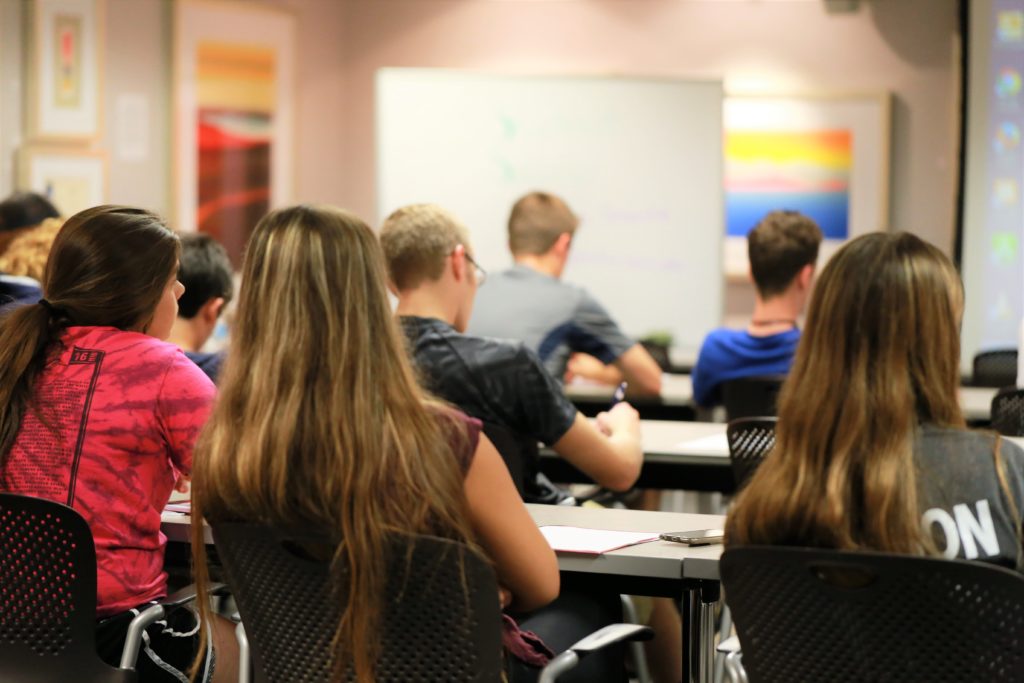This article is written by Carey Monroe, Vice President of Enrollment Management and Marketing at Cleary University, and originally appeared on LinkedIn.

Carey Monroe PMP PhD
Higher Education Leader Dedicated to Showing Parents & Students That They Have Many Career Options & Educational Paths

By Carey, Monroe, PMP, PhD
Parents, do you know what the goal of your student’s college is for their freshman year? They want your student to survive and thrive in this transition to adulthood and come back for their sophomore year. There are some things you can do to ease your own mind and help set your student up for success.
On top of the normal challenges and stresses, there is a pandemic going on after all, during which your student spent last spring attending school online at your kitchen table, or in their bedroom. What measures is the school taking to provide in-person instruction in the era of mask-wearing and social distancing?
How did the school pivot when it was time to move online/remote in the spring? What will be the mix of in-person and online instruction to provide the safest experience possible?
What you and your student will experience is the subject of much academic and social research to help you prepare. UCLA publishes the “Your First Year College Survey.” Will your child have new anxieties about keeping up with more difficult classwork? Will they struggle with time management? Will they have difficulty making new friends? How soon will they want to change their major? The survey says all of these things are common for at least half of new students. College is a time of exploration so expect your child will experience and learn from many of these challenges.
Make sure your student is checking their email. Schools are sending out important information about move-in, orientation dates, welcome week, and course schedules. Ask your student to keep you informed in advance so you have time to prepare if you are going to accompany them to campus. What are the lines of official communication from the school to the parent in a pandemic?
Ask or do your homework to find out about orientation. Some schools have a day-long orientation just for parents. What are the expectations for parent involvement in orientation?
If your child’s college has a parent Facebook group – join it. Some of the most valuable information comes from other parents. During my son’s first year of college I knew about happenings on campus before he did. This information helped me ask my son if he knew about social, cultural and other opportunities on campus. This is also a great way to get to know other parents, and you will realize that it is not just you wanting to know what is going on.
In the next few weeks your student will receive a packing list of what to bring and more importantly – what not to bring – use it. Your student should connect with their roommate and create a list of who is providing which items, so you don’t end up with two of everything on move in day. A social media connection with the parents of your student’s roommate also gives you another way to feel connected in case of an emergency.
Allow your student some time to disconnect from the family in the weeks leading up to move in – the desire to “spend as much time as you can while they’re still here” will be there but trust me – it will be much easier on you and them if you both spend some time apart.
Discuss financial expectations ahead of time – what exactly is an “emergency credit card” for? How many times per month is it OK to go outside of the meal plan and order pizza and what guidelines does the school have for ordering food off campus.
Will your student need to work to provide their own spending money or help pay tuition? Can they research campus jobs and apply in advance? Make sure your student knows how much it costs to attend – what the loan information means and complete the entrance counseling on their own.
At move in – allow your student to decide what the room will look like and where everything will go; you don’t have to unpack. It is time for your student to make their own space so let go a little. When it’s time to leave, think about it from the student’s perspective; better to be confidently reassuring than overly emotional. Expect to be emotional yourself for several days. Okay, I admit, I cried all the way home 10 hours in the car after leaving my son at school last year.
Give your student time to adjust to their new-found freedom and independence. Agree on how you are going to communicate, and how often. Some schools suggest the student make at least a Sunday night phone call. Establish with your student what constitutes an emergency. If it makes you feel better, download the tornado alert for the school area on your phone. My son slept through one last year and I woke up at home to 15 messages from family members asking if he was okay.
Pre-plan your visits – don’t just “drop in” to take them out to dinner or spend a long weekend – this demonstrates trust and respect. Send care packages – pictures of pets, home baked goodies, and little things that mean a lot – this is a great way to stay connected and for them to make friends by sharing their goods. Keep your student informed about important changes at home – especially if you turn their room into a den!
Expect your student to grow and change. During the first visit home they may test boundaries and challenge the way you think – that is OK and healthy for both of you. Try to keep an open mind and pick your battles about their hair/clothing/appearance etc. – and try not to overschedule or judge how they are spending their time at home. Try your best NOT to compare your time in college to theirs – things have changed —make them WANT to come back to visit.
Encourage your student to reach out on their own to professors, advisors, counselors, coaches, and deans. Unless you feel something is REALLY off don’t contact the school on their behalf – ask how courses are going rather than about grades – you can no longer login to “Power School” to check up on them –it’s time to let that go a little too.
Finally, remember this: It’s been a long time since you and your student watched countless episodes of “Sponge Bob” and “iCarly” and you’ve done everything you can from the beginning of their life to prepare for this moment – it’s going to be OK – so enjoy it.
“Selfhood begins in the walking away and love is proved in the letting go” C. Day Lewis
Dr. Carey Monroe is Vice President of Enrollment Management and Marketing at Cleary University, Howell, Michigan and the mother of two college students.



